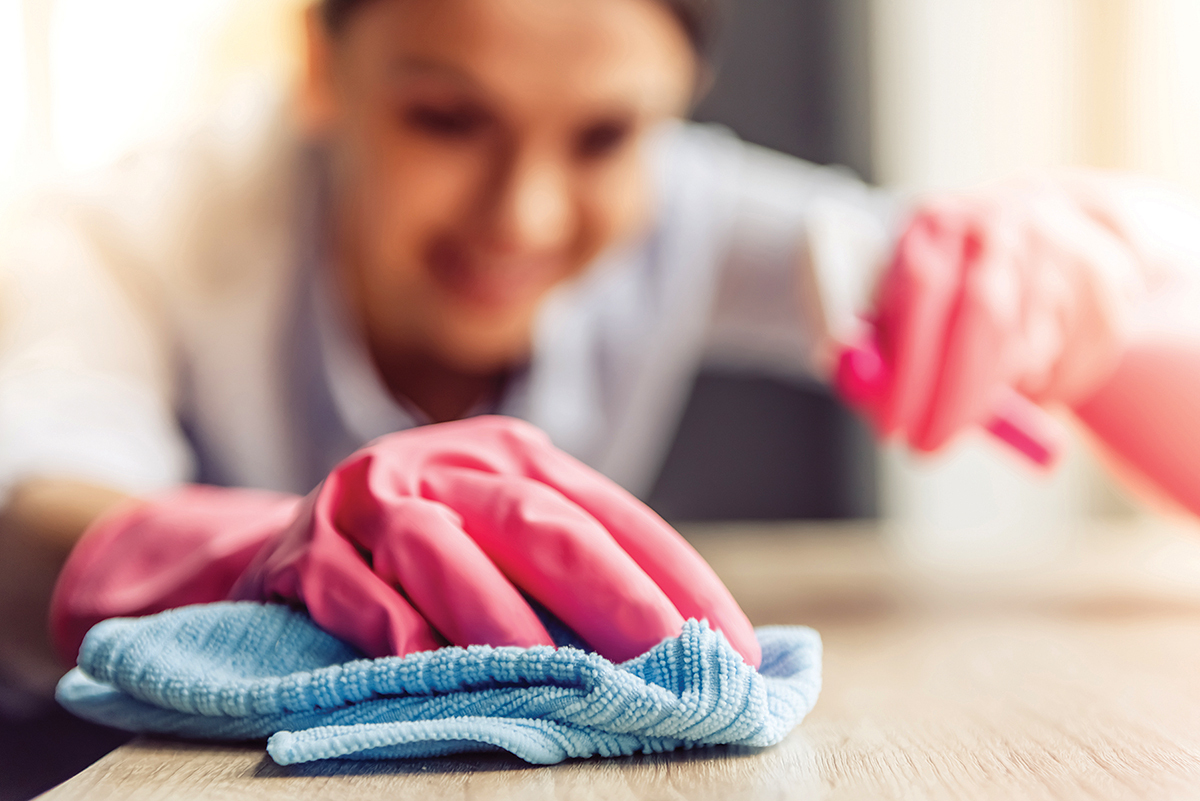Cleaning Mistakes You Might Be Making

What’s worse than spending a whole day cleaning? Spending a whole day cleaning and ending up with a home that’s not even really clean – and quite possibly dirtier than when you started.
Here are some of the most common cleaning mistakes to avoid.
Cross contaminating. Germs happily hitch rides – on shoes, cleaning rags, brushes, and sponges, so the last thing you want to do is use the same tools to clean your kitchen that you used in the bathroom. Gross! Consider using color-coded cloths to avoid cross-contaminating from one room to the next.
Using ineffective tools. Still dusting with a feather duster? You’re pretty much throwing dust up into the air and allowing it to resettle, well, everywhere. High-quality microfiber cloths are the way to go for actually picking up and permanently removing dust. Choosing the most effective vacuum cleaner for your home is a surprisingly complex decision, so be sure to thoroughly research what’s best for your vacuuming needs before you buy (i.e. one that helps with pet hair). And even basic all-purpose cleaners deserve careful consideration of such factors as pH (alkalinity /acidity), rinsability, safety, and so forth.
Neglecting to clean AND dry your tools. Stick a dirty, wet sponge under the sink (where it’s dark) and you basically have a Petri dish for breeding bacteria that will happily jump to the next dish, utensil, or cutting board you wash with it. Yuck! The same goes for the brush you use to swish out your toilet then stick – wet – back into its stand. Clean thoroughly and allow plenty of air-drying time before stowing cleaning tools.
Skipping the nooks and crannies. Even if you’re good about cleaning daily or weekly, there are bound to be nooks and crannies that are consistently neglected. Over time, those dirty little spaces begin to harbor mites, molds, mildews, and other odor-causing grime.
Making the bed every day when you get up. Dust mites, which thrive on human perspiration and dead skin cells – and die off in dry, sunlit environments – love it when you make your bed first thing in the morning. A better practice is to leave blankets and top sheets turned down neatly and window treatments wide open to allow in max sunlight.
Washing windows on a sunny day. Bright sun causes your pupils to constrict, making it difficult to detect subtle dirt and streaks on glass panes. Also, the sun’s heat can dry windows fast, making it tougher to manage streaking. Cloudy-ish (flat light) days are best for effective window washing.
Using furniture polish. Polishes make wood surfaces shine by filling in scratches or etching, making the surface smooth and light-reflecting. They don’t clean anything, and – if they contain polymers (to hide fingerprints) – they actually protect dirt, germs, and microscopic food particles, which then become breeding grounds for more germs.
Cleaning in the wrong order. Trained cleaning professionals don’t work willy nilly. They start at a point farthest away from a home’s entrance and work gradually back toward the exit to prevent re-depositing dust and dirt on newly cleaned surfaces. For the same reason, they also work from high to low within rooms, driving dust and dirt downward and finishing by washing floors.
Not thinking like a chemist. Designing safe, effective cleaning solutions — ones that dissolve and bond with dirts and oils, suspend bonded particles in water, and lift them away from surfaces without leaving toxic chemical residues behind – relies on advanced science. Using cheap, poorly designed solutions, nonabsorbent cloths and mops, and/or improper techniques can equate to simply swishing dirt and chemicals around on surfaces, rather than removing them.
Failing to read and follow directions. All the advanced science that goes into designing safe and effective cleaning solutions goes right out the window when a person using a solution fails to follow all directions and warnings. A common example is failing to allow sanitizers and disinfectants adequate soak time to ensure maximum germ kill.

